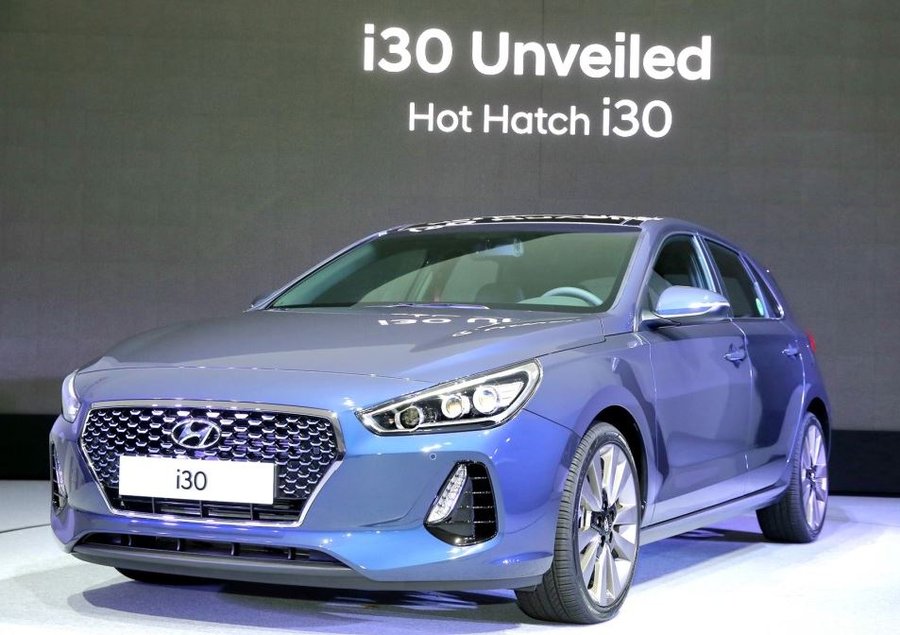2017 Hyundai i30 unveiled

With a length of 4,340 mm, width of 1,795 mm and height of 1,455 mm, the third generation Hyundai i30, in the European specification, is 40 mm longer, 15 mm wider and 20 mm lower compared to the second generation Hyundai i30. The wheelbase has remained unchanged, though – 2,560 mm.
Moving to its third generation, the car has adopted a very mature design that makes it look typically European. Cascading grille, three-projector LED headlamps, vertical LED daytime running lights with indicator function, LED tail lamps and 17-inch alloy wheels round-up the external features.
Inside too, Hyundai has given the car a drastic makeover. The interior is apparently inspired by that of the Hyundai Ioniq. Noteworthy interior features are, panoramic glass roof, (8-inch touchscreen infotainment system with navigation and Apple CarPlay and Android Auto smartphone integration compatibility, heating and cooling function for the front seats, power driver’s seat with memory function (two programmable seat positions) and a ski hatch in the rear centre seat.
The 2017 Hyundai i30 will be available with six engine options in Europe. 120 PS Kappa 1.0-litre T-GDI turbocharged three-cylinder, 100 PS Kappa 1.4-litre MPI naturally aspirated four-cylinder and 140 PS Kappa 1.4-litre T-GDI turbocharged four-cylinder are the petrol engine options. The diesel engine is the U 1.6-litre turbocharged four-cylinder unit and will be available in three outputs: 95 PS, 110 PS and 136 PS. 6-speed manual and 7-speed dual-clutch will be the transmission choices offered.
Nouvelles connexes


